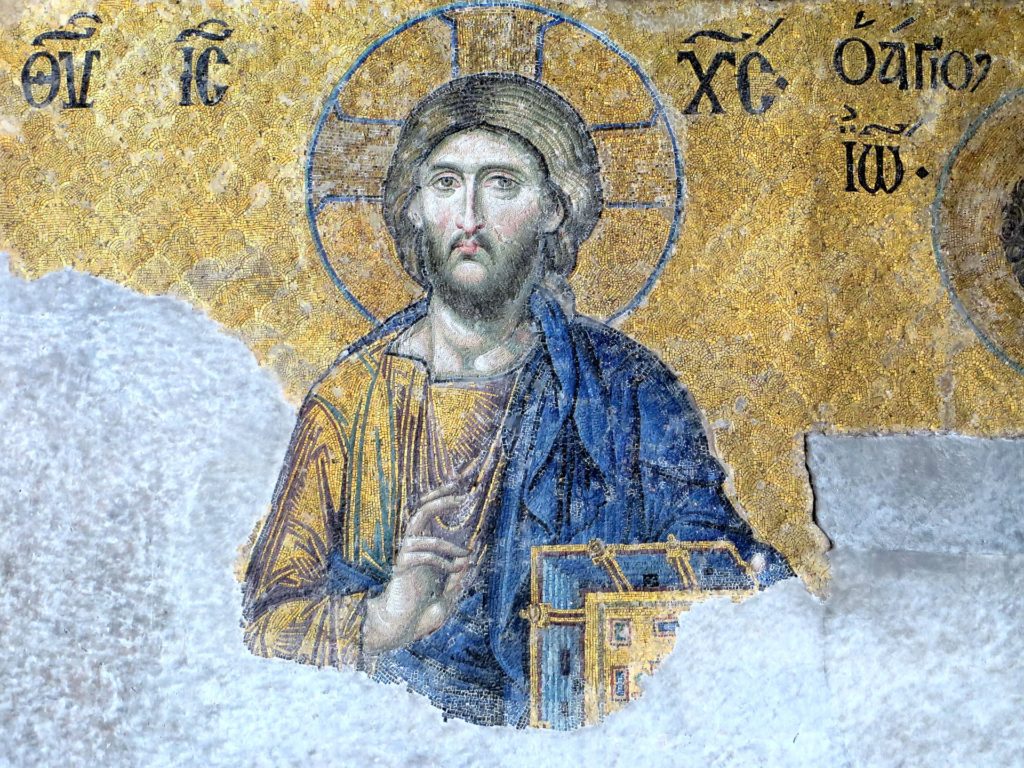
What Will Jesus Do for Me? (Isaiah 61:1-3)
Jesus has done so much. He raised Lazarus back to life and comforted Mary and Martha. He fed 5,000 with five loaves and two fish. He allowed the paralytic to walk.
But, what can Jesus do for me? This morning we’ll answer that question.
Like many passages in Isaiah, this text has a dual understanding.
On the one hand, this passage refers to Isaiah’s ministry. Isaiah is prophesying concerning the coming captivity. Isaiah is giving hope to those who will go into captivity that the nation will return to its homeland.
On the other hand, this passage refers to Jesus’ ministry. Jesus applied this text to himself (Lk. 4:17-21). This morning we want to examine this passage and see how this text apples to Jesus.
Jesus Brings Me Hope, v 1
The Israelites who would go into captivity would have every reason to despair. They would be in a foreign nation where they did not speak the language. They would be solely at the mercy of their captors. But, Isaiah says, “Wait. All isn’t lost.”
Isaiah says that he has an important message. God has sent him to preach good tidings to the poor. “Poor” here stands for those in distress. For those in distress there are good tidings; there is hope. God sent Isaiah to heal broken hearts.
Jesus, too, proclaims good news and heals broken hearts; Jesus gives hope.
Jesus gave hope to the woman caught in adultery (Jn. 8:2-11).
The scribes and Pharisees brought her to Jesus to test him. No doubt, she expected him to be cruel as they had been. Yet, he showed her forgiveness; he gave hope. Jesus told this woman that she had value.
Jesus gave hope to the publicly sinful woman (Lk. 7:37-50).
This woman was known in town as a sinner and she anointed Jesus oil with feet. The Pharisee grumbled because Jesus allowed a sinner to touch him. Jesus forgave this woman’s sin
Jesus can give you hope. The world wants to know, “Is there any hope?” Jesus can heal your troubled marriage. Jesus can heal your broken life.
Jesus Brings Me Freedom, v 1
Isaiah would preach liberty to the captives and freedom to prisoners. Isaiah, through prophecy, promised the captives that they would return to their home. This people would be in captivity 70 years, but at the end of that time, they would go home.
This freedom refers to the Year of Jubilee. During this year, all debts and obligations were released, and all slaves were released (Lev. 25:39-41). Just as in the Year of Jubilee, Isaiah was promising freedom to these captives.
Jesus frees us from captivity; we can be set free from sin (Rom. 6:18). Sin enslaves. “His own iniquities entrap the wicked man, And he is caught in the cord of his sin” (Prov. 5:22). “They themselves are slaves of corruption; for by whom a person is overcome, by him also he is brought into bondage” (2 Pet. 2:19). Sin can enslave to the point where we are trapped—Just ask those trapped in addictions.
Jesus gives true freedom (Jn. 8:31-32).
Jesus gives us the power to overcome sin.
Jesus Brings Me Reconciliation, v 2
Isaiah was told to announce the acceptable year of the LORD. This, too, refers to the Year of Jubilee. The fiftieth year was to be proclaimed as a year of liberty (Lev. 25:10). Isaiah was to proclaim liberty—the captives would return to Jerusalem.
These Jews had every reason to worry about God’s favor. Their being taken away from their homeland would show God’s disfavor. Judah had committed grave sins when God sent them into captivity—God would turn his back on his people. Yet, Isaiah announced such favor will be returned.
Jesus, too, brings God’s favor. Jesus reconciled us to God. God has reconciled us through Jesus Christ (2 Cor. 5:8). Jesus reconciled us to God through his cross (Eph. 2:16).
To reconcile means to bring back together. Jesus brought us back to God. Because of Jesus’ work, we can have fellowship with God.
Isaiah also announced the day of vengeance. Although Babylon had served God’s purpose during the Exile, God would punish Babylon. Throughout Isaiah, God promises vengeance upon the Babylonians. God’s people could take comfort in God’s promise to send punishment on those who had afflicted them.
God will punish our enemies as well. God will “repay with tribulation those who trouble” us (2 Thess. 1:6). God will take vengeance on those who make fun of us, who try to discourage us, etc.
Jesus Brings Me Joy, vv 2b-3
Isaiah preached a message of comfort.
Those who dwelt in Zion would have reason to rejoice—the city would be rebuilt. Isaiah would give them beauty for ashes and oil for mourning. When in sorrow, individuals would put ashes on their head. But instead of ashes, Isaiah is going to give them beauty. “Beauty” here refers to the turban one would wear to a party. Instead of sorrow, God will give them reason to rejoice. Oil symbolizes joy. Individuals would anoint themselves with oil to symbolize their joy. Isaiah would give these individuals reason to rejoice.
Jesus gives us rejoicing as well. We can rejoice because of what God has done for us (Is. 61:10). We can have joy because we are in Christ. There was joy in Samaria when Philip preached there (Acts 8:8). We rejoice with inexpressible joy because of our salvation (1 Pet. 1:8-9).
With Jesus we have reason to rejoice. Our sins are forgiven. Our home is in heaven. No one can take away that joy!
This sermon was originally preached by Dr. Justin Imel, Sr., at the Owingsville church of Christ in Owingsville, Kentucky.





